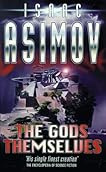A key characteristic of memorable movies/shows is they have a dense storyline.
They tell a lot of things in very short span of time. When you recall individual parts of these stories, they seem a lot bigger by themselves. Over time different plots from the movie bubble up in your memory and as you review them at your own pace you see the details and angles you missed before. The separate scenes appear much longer in your mind, when they actually take few minutes on screen. After years when you watch the movie again, you feel surprised that all those things happened in the span of mere couple of hours.
A classic example is Godfather. Many times I find it hard to believe that Michael Corleone turns from a soldier to the head of mafia family only in Godfather-I. That scene when he protects his father in hospital, that scene when he fumbles for revolver in restaurant bathroom before making his first kill, his exile in Italy when he gets married first time and subsequently looses her, the scene when Vito Corleone dies while chasing his grandson, the scene when Michael makes an offer to Moe Greene and dominates Fredo, the scene of baptism ceremony with killings of his competitors interspersed. Each one of these scenes makes deep impression in our memories, but only take few minutes on screen.
Recently I had the same experience when I watched first episode of Mad Men again. So many things happen in that first episode. It gives the first glimpse of every character's character. A dialog, a casual comment, a side glance or even a pause tells so much about the character. None of it is unintended. There is great meaning even in non-action, like when Don won't take Pete's extended hand calling him "Buddy". Of course you don't get it the first time. But after you have watched the characters for four seasons and you have known their true natures, you really appreciate how their first appearance in that first episode was thoughtfully composed to give you hints of their attitudes and aptitudes. It must take a master mind to compose and direct such potent work.
I plan to watch the first four seasons of Mad Men again, before the fifth one starts in March next year.

